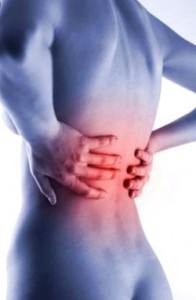Treating chronic pain can be challenging. Often the reason for the pain is not clear, and it may take several types or combinations of treatments before you find relief. When treatment is started, some people may have increased pain because their chronic pain has caused them to be inactive and they have lost strength and flexibility. But over time, treatment should reduce the pain and increase your ability to function. You may learn new ways of doing ordinary tasks to reduce pain. Often chronic pain cannot be cured, but it can be managed well enough to significantly improve the quality of your life.
Some chronic pain is caused by specific conditions that can be treated, such as headaches, arthritis, neck pain, low back pain, or depression.
Initial treatment
The goals of treatment are to reduce chronic pain and increase your ability to function. This includes improving your sleep and coping skills and reducing stress so you can return to your regular activities. Initial treatment depends on what kind of pain you have and how severe it is, as well as whether your pain is related to an illness, injury, or an unknown cause. Often, the best approach is a combination of therapies.
You may be able to control your pain at home by:
- Making exercise (such as walking or swimming) a routine part of your life.
- Eating a balanced diet. This includes getting enough vitamins such as vitamin B and vitamin D. Talk to your doctor or a registered dietitian about a healthy diet for you.
- Using pain relievers (such as acetaminophen) or nonsteroidal anti-inflammatory drugs (NSAIDs) (such as ibuprofen Advil, or aspirin). Always take these medicines exactly as prescribed or according to the label. Do not take a nonprescription NSAID for longer than 10 days without talking to your doctor.
- Using complementary therapies, such as acupuncture or meditation.
A licensed mental health counselor, psychologist, or psychiatrist can help with your emotional well-being while you are dealing with chronic pain. It is common to respond to chronic pain with feelings of frustration, depression, anxiety, fear, and even anger. These feelings can make it tough to conquer chronic pain, especially if you use alcohol or drugs to manage your symptoms. Pain affects both your physical and emotional well-being. Untreated depression or anxiety can make your pain worse. A counselor may use treatments such as cognitive-behavioral therapy to help you cope with your pain.
Ongoing treatment
It is important to build a clear treatment plan for chronic pain with your doctor. Part of this plan includes identifying ways for you to manage your pain. Only you know the severity of your pain and how it affects your life. Be sure to ask your doctor if you are not clear about what steps you can take when pain occurs or gets worse.
Medicines or a combination of medicines and other therapies may be used to relieve pain, inflammation, depression, and sleeping problems that are linked to chronic pain. Often, long-acting sustained-release opioids (SROs) are used as the preferred medication of choice for more severe pain.
If you continue to experience chronic pain, you may be:
- Referred to one or more doctors who specialize in rehabilitation and pain management (such a Physiatrist or Board-Certified PM&R specialist ).
- Offered electrical stimulation therapies (such as TENS), which seem to decrease the feeling of pain for some people.
- Given injection therapy (such as corticosteroids), which can sometimes reduce nerve pain or pain and inflammation. This may include epidural steroid injections, facet injections, RadioFrequency Lesioning, or in some cases, Spinal Cord Stimulation.
For some people, complementary therapies can help reduce chronic pain. The best approach is usually a combination of treatments. If one treatment has stopped working, another treatment or combination of treatments may help reduce your pain. Try to stay ahead of the pain: don’t wait until your pain is severe to begin treatment.
Treatment if the condition gets worse
If your chronic pain is not relieved after you have tried numerous treatments, there are many other options available.
Treatments that are commonly used for prolonged chronic pain include:
- Physical therapy, which may include using hot and cold therapy to relieve painful areas of the body, and exercises to maintain strength, flexibility, and mobility.
- Transcutaneous electrical nerve stimulation (TENS), which uses a wire in a skin patch to apply brief pulses of electricity to nerve endings in the skin to relieve pain.
- Professional counseling, such as cognitive-behavioral therapy. Stress and depression may contribute to or occur as a result of chronic pain. It is important to be healthy emotionally as well as physically to recover from chronic pain.
- Injections – although primarily used for acute pain flareups, often spinal injections can help to reduce chronic pain and bring the pain back down to baseline level. In addition the epidural or facet injections, depending on the pathology, sympathetic nerve blocks, SacroIliac (SI) injections, and trigger point injections can be helpful for pain control.
What To Think About
Your chronic pain may improve more if you have a combination of treatments at the same time.
It is important to find a doctor with whom you feel comfortable, and to keep in regular contact with this doctor. At Non-Surgical Orthopaedics, P.C. we specialize in Pain Management and understand the need for appropriate, patient-driven care. call us at 770-421-1420 for an appointment.
